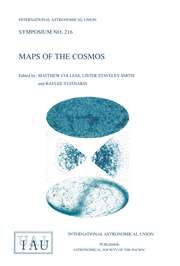No CrossRef data available.
Article contents
Influence of Convection on the Pulsational Stability of Stars
Published online by Cambridge University Press: 14 August 2015
Extract
Influence of convection on the pulsational stability of stars is examined based on Unno's (1967) theory of time-dependent convection. This theory is an extension of Vitense's local mixing-length theory of convection to the time-dependent problem. The equations of linear non-adiabatic pulsations, which include the thermal interaction between convection and pulsation, have been solved numerically on a series of Cepheid models. It is found that the thermal eigenfunctions (of δ T/T and δ L/L) exhibit spatial oscillations with short wavelength in cool stellar models where the energy is mostly transported by convection. This phenomenon of spatial oscillations is interpreted, and it is shown that they arise because of the phase lag of the convective flux to pulsation and they are related to the local character of the convection theory. It is found that the spatial oscillations play a determinant role in the pulsational stability in the region of the red edge of the Cepheid instability strip, as far as the thermal convection-pulsation coupling is concerned. The details of this study have been pulbished in Astronomy and Astrophysics.
Information
- Type
- Session 6: Effect of Rotation and Magnetic Field in Stellar Evolution
- Information
- Copyright
- Copyright © Reidel 1981

